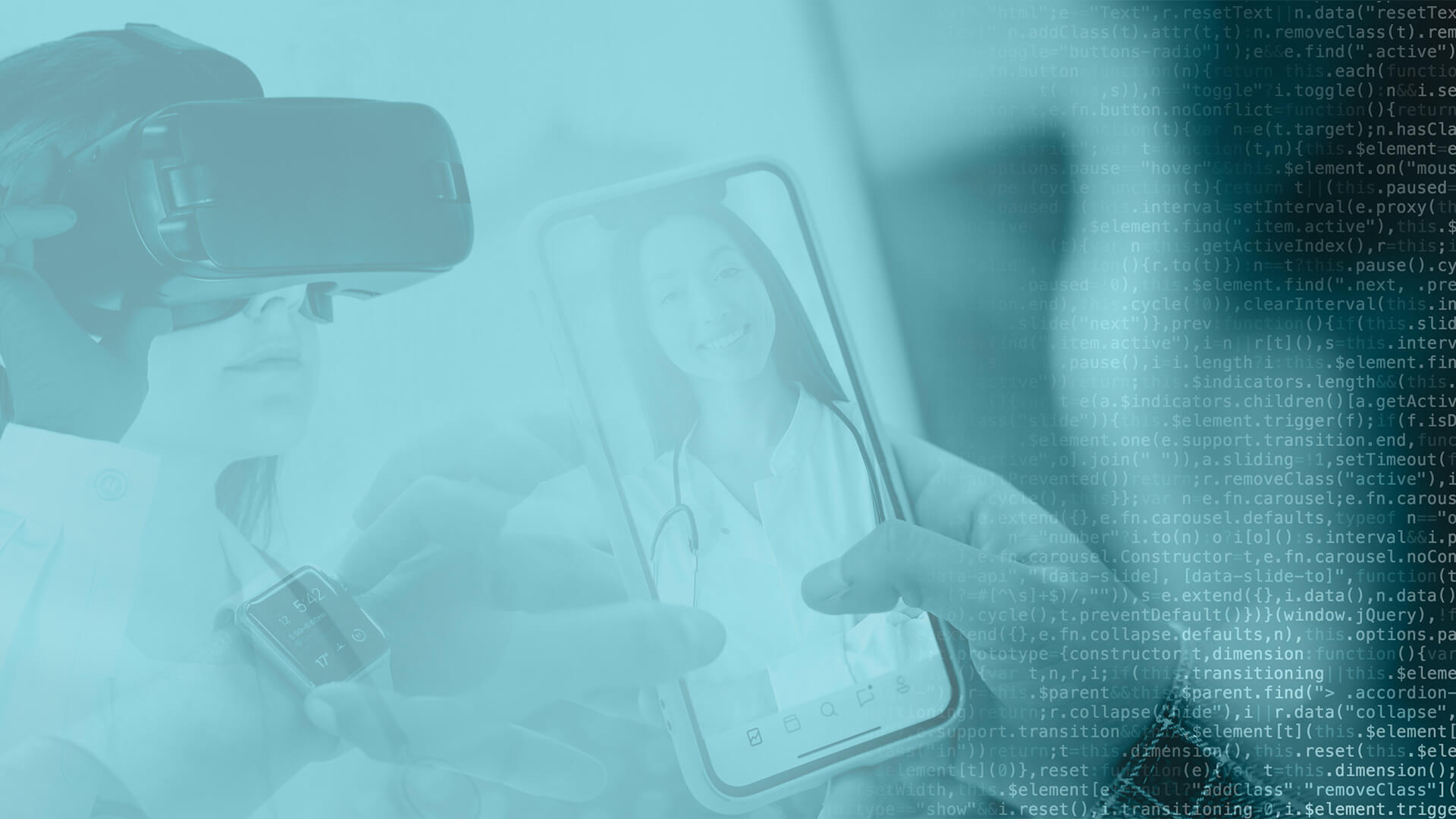INTRO
First of all, we would like to point out that this is not a scientific article or even a research review. Rather, it is a knowledge base and a comprehensive understanding of where this sector and its solutions may be headed and where the healthcare market should be headed at this time.
The goal of this article is to provide an overview of what the MedTech landscape can contribute to your knowledge, project or business.
WHAT’S & WHY MEDTECH?
MedTech is a set of know-how that combines healthcare with technologies applied in multiple forms of digital products that serve to treat, improve, or care. For example, there is palliative care for patients but also approaches for physicians in healthcare, such as monitoring health remotely or providing a more accurate diagnosis. Some of these digital products are specifically designed to enable early diagnosis and less invasive treatments and to significantly reduce the time needed to treat illnesses, which in turn can have a major impact on the success of therapy.
Given the great potential of MedTech in helping physicians deal with complex scenarios and decisions, keep an eye on this area and the technologies behind it in the coming months and years. Moreover, digital health solutions are one of today’s trends, with more and more users demanding this new way of treatment in the healthcare sector. From what we have seen in the last year, the future of healthcare has changed, favored by government investments, the perspectives of the pharmaceutical industry, the new ways of working in clinics and hospitals, and, of course, the demands of patients.
MEDTECH MANDALA
To represent and easily understand the different technology areas within the MedTech ecosystem, we have created the MedTech Mandala (diagram) from scratch for you.
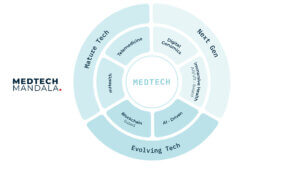
It has not been mentioned in this article yet, but it is important to highlight that we will present some consumer-facing MedTech solutions, such as mHealth (sensors, wearables & gamification), telemedicine (provides personalized healthcare services remotely), AI and data-driven products (Big Data & medical imaging), blockchain-based products (traceability, EHR interoperability & tokenization) and immersive health AR /VR-based products and digital genomics.
We selected these solutions because some of them are already being used by healthcare professionals, which means that the technology is solid enough to do its job and, most importantly, that people recognize its added value, while others should be used in the future, as we are dealing with the highest quality and most advanced technologies. However, it needs to be more thoroughly understood, developed, and therefore recognized.
SOLUTIONS & OPPORTUNITIES
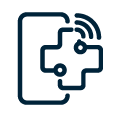
mHealth is a new form of health promotion through mobile and wireless technologies. It is a powerful combination of using apps, wearables to accelerate self-monitoring, or personal digital assistants (PDAs) that can, for example, save patients with chronic conditions, as well as costs related to the treatment of specific illnesses. Through mHealth-based products, it is possible to monitor various biosignals, with medical and healthcare professionals accessing patient data and providing feedback on medical diagnoses from their own clinics or hospital. In terms of gamification in these products, there are many solutions for behavioral change (non-medical conditions) where the patient can create a direct emotional connection and sense of engagement with their own smartphone, leading to well-being and self-care as part of a reward mechanism to keep using it.
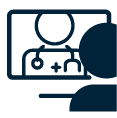
Telemedicine is a form of health care based on remote treatment where patients and providers are separated by distance. The goal is to monitor medications and manage patient health anywhere with the right treatment at the right place and time.
This technology can contribute to widespread healthcare by improving access to patients. Aside from what seems obvious, telemedicine can be used in the context of immediate access to care that is industry-recognized as emergency care, such as stroke care. To differentiate telemedicine from mHealth: While the latter is based on mobile devices, telehealth goes beyond virtual one-on-one conversations between physicians and patients. It is increasingly evolving into a direct-to-consumer product without a screen, such as home delivery of prescriptions and home medical equipment.
AI-driven or data-driven solutions that leverage artificial intelligence (AI) can be a game changer in the healthcare industry.
Before we look at how AI-driven products are helping healthcare professionals make clinical decisions, it’s important to know that AI is only effective when supported by big data. In this way, reliable information can replace multiple physicians. Imagine a physician who has a few years of practice and has the basics in using technology – we are talking about a different level of expertise. It’s important for professionals to understand that these tools can supplement their diagnosis with more knowledge. An example of AI’s potential is when a mundane task, like working through a routine checklist, turns into a non-task. In addition, healthcare professionals can benefit from AI when they read algorithm-driven information using computer vision, text, or natural language processing.
Blockchain-based healthcare products can be delivered in different and innovative ways. One of the best ways to explain this trending technology is to explain its potential applications. For example, if applied to the supply chain of pharmaceuticals, it could help combat counterfeit drugs and improve accurate information from pharmaceutical companies and logistics partners. In terms of blockchain-based tokens (tokenization), the system is predestined to provide incentives for ecosystem participants, such as redeeming benefits, exchanging them for another cryptocurrency, or exchanging them for cash on designated exchanges, all using a utility token that can facilitate health information transactions. Blockchain can also provide a universal exchange format for electronic health records (EHRs), as they are not standardized, which brings us to the main reason for these problems.
Immersive health, more specifically the use of virtual reality (VR) products in healthcare, should be a new way to treat patients, incorporating an exponential technology with great potential in psychology and mental health, but not only there.
Using VR in cognitive behavioral therapy for phobias or even anxiety makes exposure more accessible and gives patients more confidence. It also provides a 360-degree view of the patient’s health and helps doctors diagnose the condition. On the other hand, VR and augmented reality (AR) products can help surgeons engage with different environments and scenarios during surgeries. Aside from being used to treat chronic pain and post-traumatic stress disorder, these technologies still have a way to go to provide a fully immersive experience.
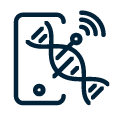
Before we can explain what Digital Genomics is, let us first clarify what a genome is. A genome is the complete DNA sequence of an organism, i.e. the totality of all genes of a living being.
So digital genomics is a digital copy of your genome on your laptop.
The main goal of this technology is similar to others: to improve our health, but in a different and more individualized way that will guide future generations. Genetic profiling is expected to increase and by 2025, over a billion people will have their genomes sequenced.
The ability of this technology to make targeted changes to the genome of a living cell has huge implications for areas such as precision medicine. Consider how it can impact prenatal and inherited diseases, as well as rare diseases. Applications like preventive medicine are revolutionizing the way we think about genetics.
ABOUT THE AUTHOR

Afonso Monteiro is a business development manager at LOAD. He holds a master’s degree in dentistry, and a post-graduate degree in IT management, and is passionate about digital innovation. He has focused on helping companies and individuals develop unique digital solutions based on what people want and advises them on how to develop scalable digital products.









